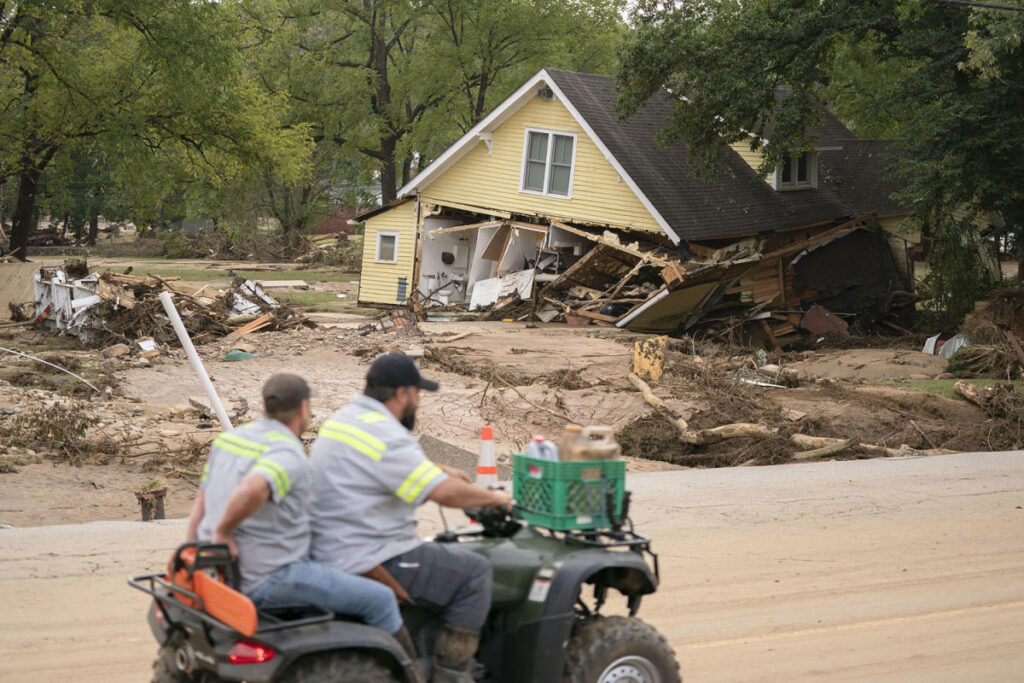As communities in the Southeast, particularly North Carolina, grapple with the aftermath of Hurricane Helene, former President Donald Trump’s handling of the government response to the disaster has come under scrutiny. For several days, Trump has propagated false narratives regarding the relief efforts, dismissing pleas from state and local officials to correct his misleading statements. This disregard for truth has significant repercussions, as relief agencies struggle to dispel misinformation that undermines recovery efforts. According to MSNBC reporter Clarissa-Jan Lim, these election season fabrications and conspiracy theories not only confuse the public but also waste critical resources at a time when they are desperately needed.
Vice President Kamala Harris has taken a stand against Trump’s misleading claims. Following a visit to North Carolina, she publicly criticized Trump for perpetuating false information about the Federal Emergency Management Agency (FEMA) and the support available for Hurricane Helene victims. Harris emphasized the importance of accurate communication, calling Trump’s actions “extraordinarily irresponsible” and highlighting that his focus appears more self-serving than concerned with the plight of those affected. This aligns with broader Democratic Party messaging, which positions Trump as self-interested and detached from the needs of the public, particularly in times of crisis.
Trump’s behavior in the wake of the disaster exemplifies how he has often viewed tragedies through a political lens, seeking opportunities for personal gain rather than genuinely assisting those in need. The concept of an “October Surprise”—a political event that disrupts pre-election discourse—has become a twisted reflection of Trump’s actions. By misrepresenting the situation surrounding Hurricane Helene, he not only exploits human suffering but simultaneously draws attention to his questionable integrity and priorities as a leader.
The unfolding situation surrounding Hurricane Helene sheds light on Trump’s historical failures regarding disaster response. In the face of overwhelming evidence of his shortcomings, the Harris campaign is capitalizing on this moment to reinforce its narrative. A new advertising campaign is set to shine a spotlight on Trump’s inadequate handling of previous emergencies, presenting it as a direct contrast to the Democratic commitment to effective disaster relief and recovery.
As the election approaches, Trump’s tactics of dishonesty and manipulation have the potential to backfire. By prioritizing his political ambitions over the well-being of communities in crisis, Trump risks alienating voters who value transparency and integrity in leadership. The Harris campaign aims to remind the electorate that effective governance requires prioritization of public needs over personal interest, especially in the face of devastating natural disasters like Hurricane Helene.
In conclusion, the political implications of Trump’s ongoing falsehoods during this critical time extend beyond mere rhetoric; they reflect a deeper disconnection from the reality faced by those impacted by the hurricane. As recovery efforts unfold and the truth comes into sharper focus, the Democratic narrative will likely continue to gain traction, framing Trump’s behavior not just as politically opportunistic but as indicative of broader character flaws. This situation serves as a stark reminder of the responsibilities of leadership, especially during times of crisis, and highlights the importance of truthful communication to facilitate effective public response and recovery.

